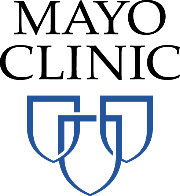MAYO CLINIC RHINOLOGY AND ENDOSCOPIC SINUS AND CRANIAL BASE SURGERY FELLOWSHIP
INSTITUTION & ADDRESSMayo Clinic SF MATCH PROGRAM ID#TBD FELLOWSHIP DIRECTORCarlos D. Pinheiro Neto, M.D., Ph.D. FELLOWSHIP ASSOCIATE DIRECTORJanalee K. Stokken, M.D. DEPARTMENTAL MISSION STATEMENTThe mission of the Mayo Clinic Department of Otolaryngology-Head and Neck Surgery is to lead the nation in providing care for patients with complex problems of the head and neck. We pledge to be a diverse and inclusive team continually striving for excellence and innovation in patient care, education, and research. OVERVIEW OF FELLOWSHIPThe Rhinology and Skull Base Surgery fellowship at Mayo Clinic in Rochester, Minnesota, aims to provide exemplary training in all aspects of rhinologic, open and endoscopic skull base surgery including diagnostic, medical, surgical, and rehabilitative management of disorders the sinonasal cavity, orbit and skull base. These primary pursuits are reinforced by teaching activities that support the development of proficient surgeons and educators who will contribute significantly to the future of the specialty and serve as ambassadors of the field. Fellowship training takes place in a high-volume quaternary health care facility and encompasses, but is not limited to:
Mirroring the Mayo Clinic otolaryngology residency experience, we pride ourselves on the mentorship model for fellowship training. This model pairs two Rhinology faculty members with one fellow per quarter. We find that working alongside a staff member for an extended period accelerates the surgical training, enhances educational opportunities through greater continuity of care, and builds more meaningful relationships between the fellow and mentoring faculty. In addition to the clinical experience, the fellow will also have the opportunity to train in anatomical dissections at our world-class Rhoton Neurosurgery & Otolaryngology Anatomy Program. FELLOWSHIP DESCRIPTIONClinical Rotations:An apprenticeship model for education is incorporated into the Rhinology and Skull Base Surgery fellowship structure. Specifically, clinical fellows will rotate with two Rhinology faculty per quarter. During this time, the fellow will be primarily assigned to two faculty members. Weekly Schedule:In a typical week, the fellow will have one or two clinic days, and three or four operative days. Research Responsibilities:The fellow will have the opportunity to participate in basic science and clinical research, present at regional, national, and international meetings, and submit for peer-reviewed publications. The institution and department collectively offer robust infrastructure to support research within the field of rhinology and skull base surgery. For example, statistical support is readily available through the Division of Biomedical Statistics and Informatics, illustration support is freely available through the Division of Biomedical and Scientific Visualization, professional videography is available through media services, and support for anatomical studies is available through the Mayo Clinic Anatomy Laboratory and the Skull Base Dissection Laboratory. With the excellent research support at Mayo Clinic and the Department of Otolaryngology-Head and Neck Surgery, the fellow will be expected to initiate and complete at least one publication within their year of fellowship. In addition, they will be encouraged to present and participate in national conferences. Support for national and international conference attendance is provided per MCSGME policy. Diversity of Cases:The fellowship prioritizes complex rhinology and skull base training; however, the fellow will also receive comprehensive training in rhinologic surgery including:
Call ScheduleNo regular Call CURRENT AND PAST FELLOWS**New fellowship REQUIREMENTS FOR APPOINTMENTCandidates for the Rhinology and Endoscopic Sinus and Cranial Base Surgery fellowship must meet the following requirements:
APPLICATION INFORMATIONThe fellow must apply through SF Match, a third-party matching service, and use their Central Application System. Complete the following steps to apply:
Appointments are made through the Rhinology Fellowship Match, which is coordinated by SF Match and sponsored by the American Rhinologic Society. Applicants considered for an appointment will be invited for a personal interview with the program director and selected faculty. APPLICATION DEADLINEAs set by the San Francisco Match CONTACT INFORMATIONCarlos D. Pinheiro Neto, M.D., Ph.D., Program Director Sue Bisco, Education Program Coordinator Veronica Little, Education Administrative Coordinator |
